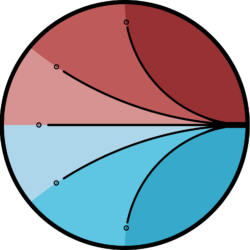We are pleased to confirm the following speakers in the Machine Learning and AI session, on June 1 from 14:15-15:45 CET:
Samuel Kaski
Bio: Professor in Computer Science at the Department of Computer Science, Aalto University.
Title: Data-analysis with humans
Abstract: Data analysis is usually done by humans or for the use of humans. Why, then, do we not include humans in the models we use for data analysis? I will discuss ways to improve modelling results by taking the human user into account in probabilistic data analysis, by joint modelling of the user and the domain data.
Saket Saurabh
Bio: Professor in Theoretical Computer Science at the Institute for Mathematical Sciences, Chennai and Professor in Algorithms at the Department of Informatics, University of Bergen
Title: Invitation to (Parameterized) Streaming Algorithms
Abstract:
Natacha Galmiche
Bio: PhD candidate at the Department of Informatics, University of Bergen
Title: Revealing multi-modality in weather prediction using machine learning and visualization techniques
Abstract: In weather prediction, stochastic ensemble methods are widely used to provide an overview of physically possible outcomes, where the ensemble spread originates from slightly varied initial conditions as well as model imperfections. The conventional interpretation of the generated ensemble employs mean and standard deviation across ensemble members, which works well for unimodal, Gaussian-like distributions. However, this misleads and discards crucial information in the case of multimodality, i.e., distinct likely outcomes. We present a graph-based approach that reveals multimodality in univariate ensemble-based weather prediction by combining existing clustering methods with a novel concept of life span associated with each cluster.
Sjur Kristoffer Dyrkolbotn
Bio: Professor in Civil Engineering, Western Norway University of Applied Sciences
Title: Causality, relevance and counterfactuals
Abstract: Even for a simple and deterministic system with less than ten interdependent variables, there is no consensus on how to define counterfactual causality. Hence, there is also no (adequate) consensus on how to assess the relevance of different variables to the veracity or otherwise of propositions pertaining to their values. I argue that current approaches to causality in computer science cast a counterfactual net that is too wide, resulting in a notion of relevance that is too permissive in many contexts. By contrast, I suggest that a formalisation of legal causality can produce better results and – hopefully – an easier path to an informed consensus for important model classes where causal judgements are also legally and ethically salient.
